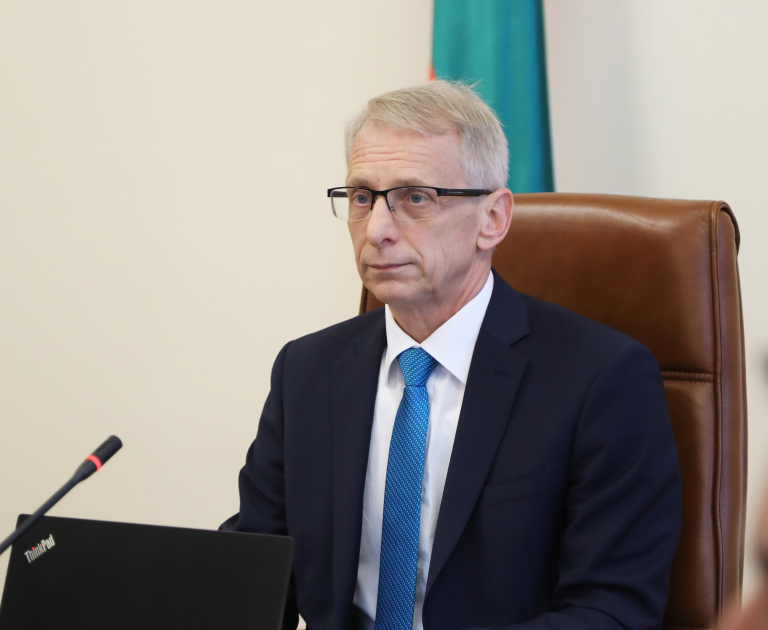
13.09.2023
The government supports the draft decision submitted to the National Assembly to liberalize the import of wheat, corn, rapeseed and sunflower seeds from Ukraine from mid-September of this year onwards. This was stated by Prime Minister Acad. Nikolai Denkov before the cabinet meeting today.
Imports will stir up market competition. In turn, this will lead to a decrease of the prices of basic food products and of inflation, which is one of the cabinet’s main priorities. This will have a favorable effect on the Bulgarian consumers – especially people with low income, and will help meet the criteria for Bulgaria’s accession to the Eurozone that is another important priority of the government. The abolition of restrictions would further increase the budget revenue. “Since the beginning of 2023 the future earnings lost to the budget as generated by import and export, amount to BGN 146 million. That sum could have been spent on education, healthcare and culture or on support for the agricultural sector,” the Prime Minister said. The liberalization of imports will ensure the inputs for the vegetable oil refineries and biodiesel facilities that supply the Bulgarian and non-Bulgarian markets.
The Prime Minister quoted figures to deny the claims of agricultural producers of “lack of whatever government aid for the sector.” In 2022, agriculture received about BGN 1.6 billion in subsidies and aids. In 2023 some BGN 2 billion were paid or are about to be paid. The State Fund Agriculture will disburse BGN 890 million of European funding and BGN 388 million of national co-financing. Separately, there will be BGN 390 million from the central budget and BGN 290 million from the budget of the Ministry of Agriculture and Food.
“The allegation that the government does not care about the sector is misleading. It will be good for the sector to care about the government when it articulates its demands,” Acad. Nikolai Denkov stressed.
“Since the beginning of September this year we have been studying the European experience how to contain surcharges all the way from the farm gate to the stalls. We will discuss and propose how to restrain these surcharges as an interim measure to support farmers and customers,” the Prime Minister said further.
Along with the lift of the ban on imports, Bulgaria will approach the European Commission (EC) with a request for additional recompense for the loss suffered by the Bulgarian farmers, especially the growers of sunflower. The increased production costs in the sector put many farms in an extremely vulnerable situation and they are in dire need of cash. Consequently, Bulgaria will call for an amendment to the Temporary Framework with state aid measures in crises and transition to support the economy after Russia’s aggression against Ukraine whereon the ceiling of EUR 250,000 per farm is increased in an amount that would allow more adequate support for growers that are afflicted by the crisis.
Apart from that, the existing infrastructure in Bulgaria requires additional measures to accommodate the increased transit traffic arising from exports from Ukraine to third countries. Accordingly, the Bulgarian government will insist that the Commission offer financial and logistic support to improve the physical infrastructure along the Solidarity Lanes via Bulgaria as well as to promote the development of the rail freight corridors that are used to the same end.
The cabinet is committed to strengthen the phytosanitary control on products that arrive from Ukraine to make sure that they are safe and will not damage human health. Bulgaria will require that the other member states act in the same way along the route of these imports to our territory.
“Thus we will show national responsibility to the whole society and not just for one sector,” the Prime Minister concluded.
At the insistence of five EU member states of which Bulgaria was one, on 2 May 2023 the Commission adopted extraordinary and temporary preventive measures regarding the import of wheat, corn, rapeseed and sunflower seeds from Ukraine to Bulgaria, Hungary, Poland, Romania and Slovakia until 5 June 2023. The time limit was afterwards extended to 5 September 2023 due to logistic difficulties and the limited grain storage capacity before the harvest season in the five member states.